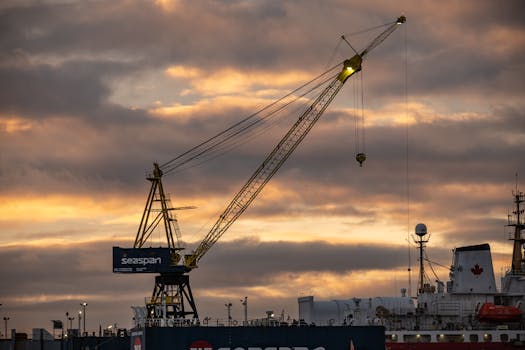+17162654855
+17162654855
DMV Publication News serves as an authoritative platform for delivering the latest industry updates, research insights, and significant developments across various sectors. Our news articles provide a comprehensive view of market trends, key findings, and groundbreaking initiatives, ensuring businesses and professionals stay ahead in a competitive landscape.
The News section on DMV Publication News highlights major industry events such as product launches, market expansions, mergers and acquisitions, financial reports, and strategic collaborations. This dedicated space allows businesses to gain valuable insights into evolving market dynamics, empowering them to make informed decisions.
At DMV Publication News, we cover a diverse range of industries, including Healthcare, Automotive, Utilities, Materials, Chemicals, Energy, Telecommunications, Technology, Financials, and Consumer Goods. Our mission is to ensure that professionals across these sectors have access to high-quality, data-driven news that shapes their industry’s future.
By featuring key industry updates and expert insights, DMV Publication News enhances brand visibility, credibility, and engagement for businesses worldwide. Whether it's the latest technological breakthrough or emerging market opportunities, our platform serves as a bridge between industry leaders, stakeholders, and decision-makers.
Stay informed with DMV Publication News – your trusted source for impactful industry news.
Materials

**
Canada is tightening its grip on steel imports, implementing stricter rules and bracing for the potential imposition of tariffs. This move, driven by concerns over surging imports and the health of the domestic steel industry, has ignited a heated debate among industry players, trade experts, and government officials. The implications are far-reaching, affecting everything from construction projects to automotive manufacturing and potentially impacting trade relations with key allies.
For months, Canadian steel producers have voiced increasing concerns about a flood of steel imports, particularly from countries like China, South Korea, and the United States. They argue that unfairly priced imports are undermining their competitiveness, leading to job losses and plant closures. Keywords like "Canadian steel industry," "steel import quotas," and "anti-dumping duties" have been trending in recent weeks as the situation unfolds. The government's response reflects a growing recognition of the severity of this issue.
The Canadian steel industry, a crucial component of the country's manufacturing sector, employs tens of thousands of workers directly and indirectly. Its health is considered vital to the overall economic well-being of many Canadian communities. The current situation highlights the delicate balance between fostering free trade and protecting domestic industries from unfair competition. The debate touches upon core tenets of international trade policy and sparks questions about the efficacy of existing trade agreements like the USMCA (United States-Mexico-Canada Agreement).
The newly implemented rules aim to address several key concerns:
The potential imposition of tariffs on steel imports is the most significant element of the new rules. While the specific details of any tariffs remain undisclosed, the mere possibility has already sparked reactions from trading partners. The prospect of retaliatory tariffs from countries affected by Canada's actions raises concerns about a potential trade war.
The keywords "Canada steel tariffs," "trade war," and "international trade disputes" have experienced a significant surge in search volume as analysts and industry experts weigh the potential economic consequences. The delicate balance of trade relationships, particularly with the United States, is at stake. The USMCA, signed in 2018, aims to facilitate free trade among the three North American nations. However, the current situation demonstrates the inherent complexities and potential for conflict within even the most carefully crafted trade agreements.
The tightened steel import rules will undoubtedly have a ripple effect throughout the Canadian economy. While domestic steel producers stand to gain from increased protection, other businesses that rely on imported steel may face higher costs. This could lead to increased prices for consumers on various goods and potentially slow down construction projects.
The impact will vary across different sectors. The automotive industry, for instance, is a significant user of steel and may be particularly vulnerable to price increases. Similarly, construction companies will need to factor higher steel costs into their budgets, potentially delaying or downsizing projects.
Canada's tightening of steel import rules highlights the challenges inherent in navigating the complexities of international trade. Striking a balance between protecting domestic industries and fostering free trade is a constant juggling act for governments worldwide. This situation serves as a case study in the ongoing debate about the optimal approach to trade policy in a globalized economy.
The new rules represent a significant shift in Canada's approach to steel imports, signaling a determination to protect its domestic steel industry. However, the long-term consequences and the potential for trade disputes remain to be seen. The coming months will be crucial in determining whether this approach achieves its intended goals and avoids escalating tensions with key trading partners. The ongoing discussion surrounding "fair trade," "trade protectionism," and the broader impact on the global steel market will continue to dominate headlines and policy debates. The situation demands close monitoring and careful analysis from all stakeholders.